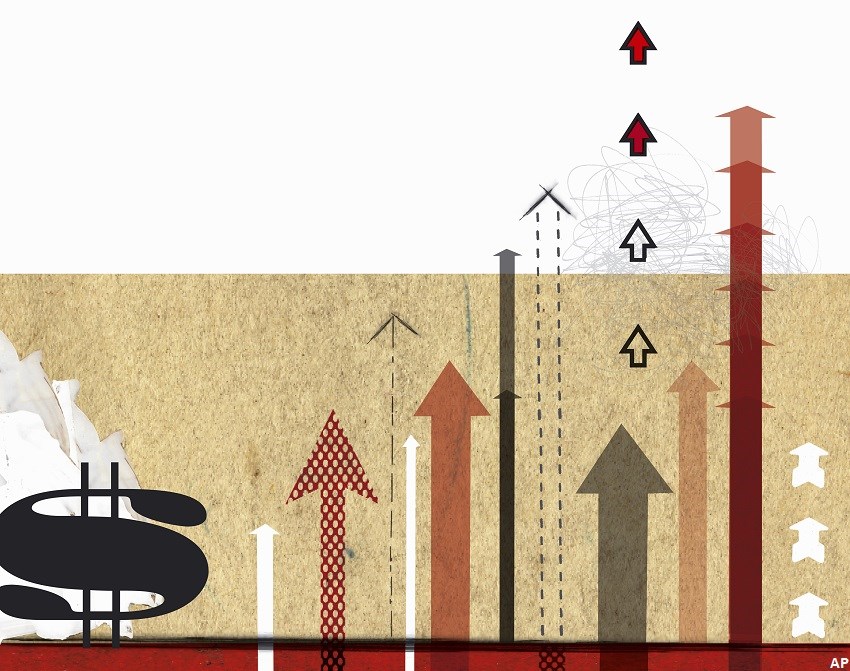
The volatile stock markets of recent months provided Fidelity Global Intrinsic Value Class F with the ability to shine as growth took a tumble.
Aside from superior long-term returns that have put the portfolio in the top performance quartile for periods ranging from one to five years, the fund has provided a single-digit-percentile performance recently. For the year-to-date at May 31, the silver-rated F Series showed a return of -5.4%, a significantly smaller loss than -12.0% shown by the Morningstar benchmark index and -15.7% by the average fund in the Morningstar Global Small/Mid Cap category.
The $1.7 billion portfolio was introduced in Canada by Fidelity Investments Canada ULC in May 2015 and has achieved an impressive track record under the leadership of star fund manager Joel Tillinghast, who has been with Boston-based Fidelity investments since he began working with the firm’s legendary Peter Lynch in 1986.
Tillinghast Retiring as Portfolio Manager
The high-profile Tillinghast will be retiring from active portfolio management duties at the end of 2023. However, he will continue to be a senior advisor to the Fidelity equity team, providing input on a handful of portfolios. He’ll keep a hand in Fidelity Global Intrinsic Value, along with a team of portfolio managers including Boston-based Salim Hart and Naveed Rahman.
Fidelity Global Intrinsic Value’s team seeks unrecognized but promising small-to-mid-cap stocks trading at attractive valuations, typically with price-earnings ratios of 13 or 14 times earnings.
Inflation Favours Value
“For many years, the market was favouring long-duration growth stocks, and we don’t tend to traffic in those,” says Rahman. “But there’s recently been a pivot to a higher inflation, higher interest rate environment which tends to favour value-oriented companies whose market valuations are not predicated on anticipated earnings many years in the future. The shift has helped our portfolio.”
Investors are worried that inflation may be persistent, rather than transitory, due to a variety of causes ranging from constrained supply chains to growing consumer demand as people emerge from pandemic isolation and increase spending.
Companies must deal with rising commodity prices and a tightening labour market. At the same time, signs are mounting that the economic cycle is winding down, with central banks raising rates and corporate profit margins stressed. The Fidelity team is focusing on companies that can withstand a slower growth climate.
Resiliency is Key
“We are focusing on resilient companies that can navigate this environment, which is volatile,” Rahman says. “The U.S. Federal Reserve is trying to engineer a soft-landing, but it’s a tricky path and a recession is possible. What we have is an all-weather portfolio, not one that’s tied to a specific outcome.”
The goal is to hold stocks that offer value in terms of price, and also represent resilient, stable companies with competitive advantages, strong cash flow generation, a positive profit outlook, low debt and a healthy return on equity. Some of these stocks may have been overlooked by investors, but they are deemed likely to deliver solid, long-term gains. The team doesn’t chase fads and holds none of the expensive tech giants that still dominate market indices.
Relative to the benchmark, on a sector basis the fund is overweight in financials, energy and consumer discretionary stocks.
The team increased its energy investments in the last quarter of 2021, due to growing global demand and a restricted supply of oil and gas. TotalEnergies SE (TTE), a French multinational integrated oil and gas company and one of the world’s seven "supermajors“ is a key holding in the fund’s top ten. The team also recently invested in Mosaic Co. (MOS), the largest U.S. producer of potash and phosphate fertilizer.
The tightening supply of global energy and food is creating a favourable demand situation for products produced by these two firms, exacerbated by the conflict between Russia and Ukraine, says fund co-manager Salim Hart.
“Often the bottom-up analysis that we do leads us to specific investments that also happen to fit in with overriding macro-themes,” says Hart.
The team has also been adding defensive food-related firms including U.S.-based food processing behemoth Tyson Foods Inc. (TSN) and Montreal-based Alimentation Couche-Tard Inc. (ATD), which operates a convenience store and gas station business.
“We look for companies with pricing power, and typically avoid cyclical firms that tend to be volatile,” says Hart. “Right now, [the] opportunity has led us to have more energy and materials stocks than are typical for our strategy.”
Very Wide Net
The fund holds an unusually large, broadly diversified portfolio, with the number of stocks standing at 556 on May 31.
About 90% of portfolio assets have a market capitalization of between US$1 billion and US$20 billion, and about 10% of assets are in mega-caps. The team also invests in some micro-cap names, usually in smaller amounts due to their limited liquidity.
“We are prepared to own a little bit of a good thing -- more would be better but a little bit will do,” Rahman says. “It’s an opportunistic portfolio, and we fish across the entire spectrum of regions, sectors and capitalizations to find value.”
Geographic allocations are determined not by top-down decisions, but by the availability of compelling investment opportunities. The largest holding in the fund is Japan-based trading conglomerate Itochu Corp (8001).
“Our investment lens turns up a lot of opportunities in Japan,” says Rahman. “The Japanese stock market has consistently underperformed the U.S. market for many years, but we don’t buy the entire market. There are some highly cash-generative gems. ”
Fidelity Global Intrinsic Value Class’ largest geographic weighting is the U.S. at 45% of fund assets, but this is also the largest “active underweight” relative to the MSCI World Small Cap Index, Hart says. Japan is the fund’s second-largest sector in terms of actual weight and is also the largest “active overweight” relative to the benchmark. South Korea is also overweight relative to the index, with holdings including two insurance companies, DB Insurance Co. Ltd. (005830) and Hyundai Marine & Fire Insurance Group (001450).









.jpg)











